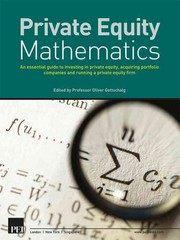Question
If we rented a spacious, two-bedroom condominium for $3,000 per month, which included parking but not utilities or cable television. Then virtually identical unit next
If we rented a spacious, two-bedroom condominium for $3,000 per month, which included parking but not utilities or cable television. Then virtually identical unit next door became available for sale with an asking price of $620,000, but we could purchase it for $600,000. Then we are with the classic dilemma buy-versus-rent decision.
Inadequate long-term needs, we planned to move to a house or even to a larger penthouse condominium within five to 10 years even sooner if the job continued to work out well.
FINANCIAL DETAILS
If purchased the new condominium, would pay monthly condo fees of $1,055 per month, plus property taxes of $300 per month on the unit. Unlike when renting, we would also be responsible for repairs and general maintenance, which are estimated would average $600 per year.
If decided to purchase the new unit, we intended to provide a cash down payment of 20% of the purchase price. There was also a local deed-transfer tax of approximately 1.5% of the purchase price, and a provincial deed-transfer tax of 1.5%, both due on the purchase date. (simplicity, we planned to initially ignore any other tax considerations throughout our analysis.) Other closing fees were estimated to be around $2,000.
In order to finance the remaining 80% of the purchase price, we contacted several lenders and found that we would be able to obtain a mortgage at a 4% quoted annual rate that would be locked in for a 10-year term and that we would amortize the mortgage over 25 years, with monthly payments. The money that we were planning to use for our down payment and closing costs was presently invested and was earning the same effective monthly rate of return, as we would be paying on our mortgage. We assumed that if we were to sell the condominium say, in the next two to 10 years we would pay 5% of the selling price to realtor fees plus $2,000 in other closing fees.
- Determine the required monthly payments for the mortgage
- Determine the "opportunity costs" on a monthly basis, of using the required funds for closing costs, rather than leaving those funds invested and earning the monthly effective rate determined in Part A.
- Determine the principal on the mortgage outstanding after a) two years, b) five years
- Determine the "net" future gain or loss after two and five years under the following scenarios, which Rebecca Young has determined are possible after some "due diligence" regarding future real estate prices in the Toronto condo market:
- The condo price remains unchanged
- The condo price drops 10 percent over the next two years, then increases back to its purchase price by the end of five years
- The condo price increases annually by an annual rate of 5 percent per year over the next 5 years
- As Rebecca Young, what decision would you make? Describe the qualitative considerations that could factor into your decision.
Step by Step Solution
There are 3 Steps involved in it
Step: 1

Get Instant Access to Expert-Tailored Solutions
See step-by-step solutions with expert insights and AI powered tools for academic success
Step: 2

Step: 3

Ace Your Homework with AI
Get the answers you need in no time with our AI-driven, step-by-step assistance
Get Started


